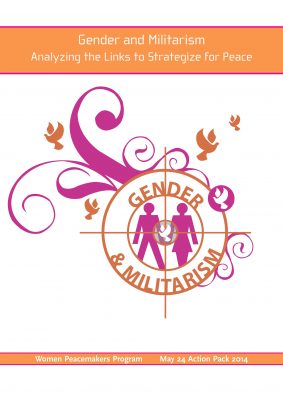military in society
Militarising Communities: The Armed Forces Community Covenant
Vron Ware reports on how the Armed Forced Community Covenant is a crucial part of the creeping militarisation of UK society. This article was originally published in Red Pepper.
Armed Forces Day Kids with guns controversy at family celebration for British troops
Herald Scotland
THERE are hook the duck stalls, fairground rides and countless ice-cream vans. But these are not the most popular attractions with the thousands of small children who descended on Stirling yesterday for Armed Forces Day. They seemed to prefer handling the high-velocity sniper rifle, getting to grips with an 81mm mortar or staring down the sights of a Starstreak II missile launcher, with its operator on hand to boast of its "multi-target capability" and 7km range.
War and peace
Letter to The Times (see all signatories below)
On this day 100 years ago, Archduke Ferdinand of Austria and his wife were assassinated in Sarajevo in an action that led to the First World War. Unchecked militarism in Europe was also a major factor.
Today is also Armed Forces Day, one of the clearest indications of the re-militarisation of British society. Established in 2009 to increase public support for the forces, there are over 200 public events, many billed as 'family fun days'. This week also saw Uniform to Work Day promoting the reserve forces and 'Camo Day' in schools.
The creep of militarism into our civil institutions
Quaker report opposes increasing militarisation
Ekklesia
“The stirring music, smart uniforms and synchronised marching that characterise Armed Forces Day are a glossy front behind which sits a deliberate strategy to manipulate the public,”
Gender & Militarism: Analyzing the Links to Strategize for Peace

Gender and Militarism: Analyzing the Links to Strategize for Peace, published by the Women Peacemaker Programme in 2014, is a resource with contributions from many individuals and organisations, including some of the foremost researchers in the area.
Peace Education Network

The Peace Education Network is a national UK network that brings together people and organisations committed to education for peace.
Disaster militarism
Open Democracy
The country’s military institutions must not be seen as deserving of special consideration. Once the ethos of public service has been smashed and discredited by neoliberal restructuring, the danger is that it will take more than an army to bring it back. By Vron Ware.
Multicultural Britain rejecting foreign conflict, MoD admits
Guardian
Repeat of Afghanistan-or-Iraq-style invasion ruled out for war-weary UK, according to senior officials
Fighting the ‘Battle of the Narrative’: Communicating Army 2020
RUSI
A recent course organised for influencers was designed to convey the British Army’s response to a changing strategic landscape. Despite redeployment from Afghanistan and Reserve reorganisation, this exercise emphasised that the British Army is still very much in the war-fighting business.
